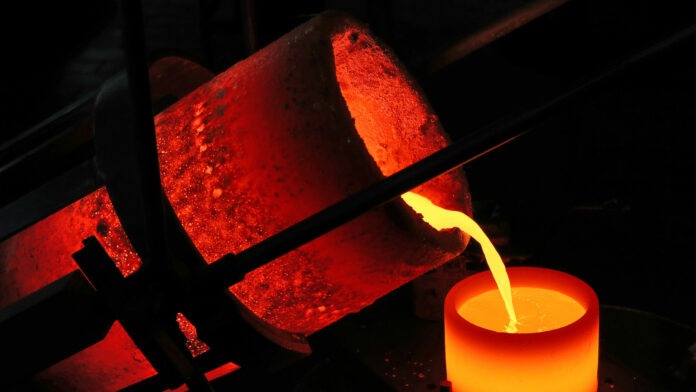
ACCORDING to Johns Hopkins University academic Steve Hanke, Zimbabwe ranks as the world’s most miserable nation — a perspective taken not of the national character but of its economic outlook. Hyperinflation has devastated the country in the past and might return after President Emmerson Mnangagwa unveiled plans in May to encourage use of the local currency rather than the dollar.
Central to Zimbabwe’s ranking on Hanke’s annual misery index is its mafia political class, its high unemployment rate (20%), and poor GDP growth (0.9%) — factors that will ring familiar to local ears. But it’s the recent increase in inflation, up 176%, that pushes it over the edge, beyond war-torn Ukraine and Sudan.
Tell that, though, to the US and European shareholders in Zimbabwean gold producer Caledonia Mining, where dividends have increased sixfold in three years. This, after seven years of plugging along with a $150m expansion of its reassuringly named Blanket mine. Now the company has plans to double gold output.
“I’m not for a minute saying it’s all nectar and honey,” says Mark Learmonth, CEO of Caledonia Mining since last year. It’s difficult in Zimbabwe and it’s complex, especially working with government bureaucracy. “It’s just a process, whereas in our limited experience in South Africa it’s that, from time to time, administrative complexities are against you,” he says in an interview.
Caledonia also proves it’s possible to finance mining in Zimbabwe, despite the economic headwinds. There’s always a power deficit at Blanket mine and, after relying heavily on diesel-powered gensets for several years, Caledonia financed $12m for a solar plant at the mine. This was done by making its shares available “on demand” in New York in preference to a bookbuild, which raises finance over a set time frame and with specific investors.
Caledonia’s approach suited the way investor appetite rolls into Zimbabwe, where capital can be raised — but is done so slowly.
In Europe, the company recently attracted new Swiss investment; closer to home it raised some cash by listing shares on the Victoria Falls Stock Exchange. (Joburg-listed Tharisa had even greater success there, raising about $40m listing bonds for its $391m Karo platinum group metals mine in Zimbabwe.)
According to Learmonth, the availability of capital from within Zimbabwe is surprisingly vigorous. The company was initially seeking about $3m worth of paper out of Zimbabwe. “We stopped at about $8m,” he says. “We got demand coming out of Zimbabwe which was so good. Then we did a recent equity raise in March and April and raised about $16.6m, of which $6m was from an investor in Switzerland.”
Learmonth sees continued demand for the firm’s share in Zimbabwe, provided it’s managed properly.
The local capital market might come into play to some extent, as Caledonia sets about raising cash for the Bilboes brownfields expansion north of Bulawayo, an asset the company bought last year for about $53.3m. Learmonth acknowledges he “would be mad” to assume Western commercial banks such as Barclays and Crédit Agricole will be “forming a queue” for the company’s financing needs, yet an unnamed development finance institution has promised to supply the debt portion of the $250m needed for Bilboes. According to Learmonth, that financier has as much as $1bn earmarked for Zimbabwean investment.
Quite how all the finance required for Bilboes will be managed is something of a brainteaser for Caledonia’s board. Will investors plump for sudden, aggressive expansion of Caledonia after seven years of gradual, conservative growth? What’s being contemplated is the conversion of Caledonia from yield to growth stock, which might be especially risky given the growth is all in Zimbabwe.
“Why waste your time talking to me? Why don’t you pick up the phone to our bloody brokers and ask them how they’re going to transition from one to the other?” says Learmonth. He would like to grow aggressively, but he can’t risk breaking the company. If he succeeds in financing Bilboes, gold production could be increased to 250,000 ounces a year, which would make Caledonia an interesting mid-cap in the Sub-Saharan gold stakes.
‘Increasing political risk’
Asset quality seems to be the dominator in terms of attracting capital to the trickier regions of Africa. UK-listed Hummingbird Resources has almost identical gold production to Caledonia and resembles it in several ways. It has mined steadily in Mali for years at Yanfolila, which it bought from Gold Fields. But unlike Caledonia, it ran into major production issues last year.
Hummingbird CEO Daniel Betts, who hails from a family that’s operated a gold business since the late 1700s, says the decline in the company’s share price nearly broke him.
“It’s been the most intense, stressful period I’ve ever been through in my career,” says Betts. “You put out your guidance and if you miss it, it’s a shitshow.”










